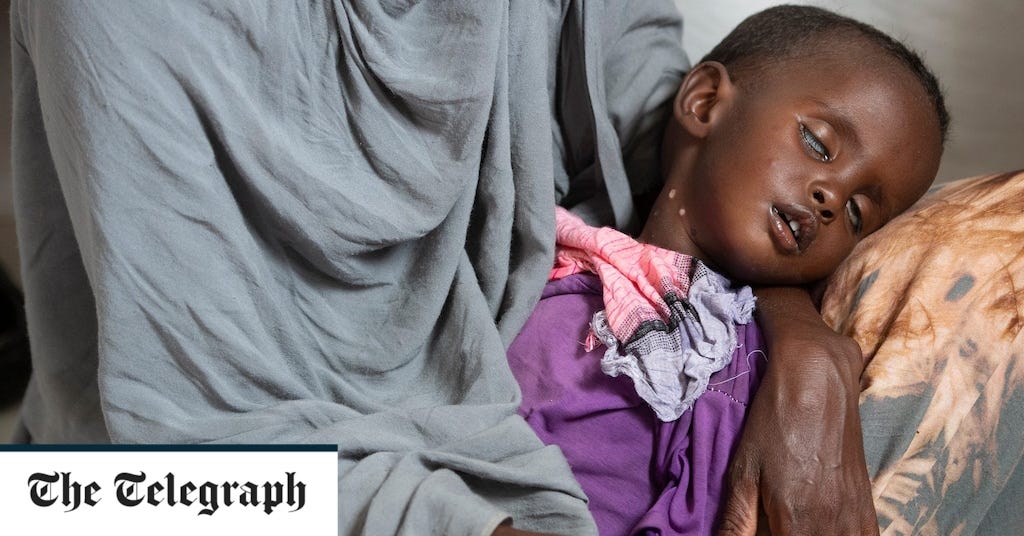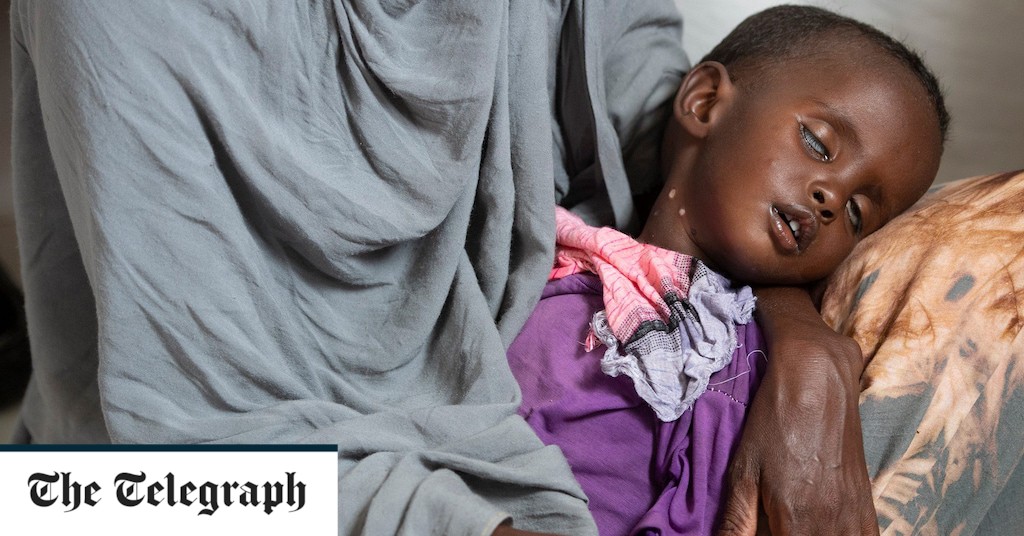This is a republication of the article below, with the title above, highlighting the topic.
The next global health emergency is already here — and it isn’t a pathogen
The Telegraph
By Harriet Barber and Ben Farmer
17 June 2022
Peter Sands, the executive director of the Global Fund to Fight Aids, Tuberculosis and Malaria.
Site version edited by:
Joaquim Cardoso MSc.
Digital and Health Transformation
Institute for continuous transformation,
to better health, care, costs and universal health
Health Crisis Unit
July 2, 2022
Key messages:
What is the problem?
- “The mental framing in global health is around a brand new pathogen, but it increasingly looks like we’re facing a crisis where the poorest people are unable to heat and feed themselves,”
- “For some, tragically, there will be starvation. But much larger numbers will be more vulnerable to existing pathogens.”
What action and financing is needed?
- September’s Global Fund replenishment will be an “acid test” to the degree to which that recognition translates into funding decisions.
- · The UK is a founding member of the fund, and the third largest public donor, with a total contribution of £4.43 billion to date.
- ·“We are looking for $18 billion to fund the next three years of our activity, all for protecting people from infectious diseases,”
- About $6 billion would be invested to improve pandemic preparedness by supporting healthcare workers, strengthening laboratories and funding diagnostic tools.
What about covid?
- “Covid is not going away, and we don’t know what the next variants will look like,”
ORIGINAL PUBLICATION (full version)

The next global health threat is here — and it’s not a deadly new pathogen, but rocketing food and fuel prices, a leading expert has warned.
The next global health emergency is already here — and it isn’t a pathogen
The Telegraph
By Harriet Barber and Ben Farmer
17 June 2022
Peter Sands, the executive director of the Global Fund to Fight Aids, Tuberculosis and Malaria.
Growing food shortages will not only cause starvation, but also put vulnerable populations at greater risk of existing and deadly pathogens, said Peter Sands, the executive director of the Global Fund to Fight Aids, Tuberculosis and Malaria.
Growing food shortages will not only cause starvation, but also put vulnerable populations at greater risk of existing and deadly pathogens
“The mental framing in global health is around a brand new pathogen, but it increasingly looks like we’re facing a crisis where the poorest people are unable to heat and feed themselves,” Mr Sands said.
“For some, tragically, there will be starvation. But much larger numbers will be more vulnerable to existing pathogens.”
The warning from a leading figure in global health policy comes amid concern that price hikes and worldwide economic turmoil fed by the aftermath of Covid and Russia’s invasion of Ukraine will badly hit the health of many of the world’s poorest.

Mr Sands is a senior British banker who now leads the fund that invests more than £3bn a year to defeat three of the deadliest infections facing humanity.
Each year, TB kills 1.5 million people, malaria kills 650,000 people, and Aids-related illnesses kill 680,000 people.
Each year, TB kills 1.5 million people, malaria kills 650,000 people, and Aids-related illnesses kill 680,000 people.
But rampant inflation, food shortages and an economic slump may worsen the effects of those diseases.
People who are malnourished or underweight are more likely to contract TB and are more susceptible to reinfection or relapse.
While, undernutrition increases risk of death from malaria and aggravates the effects of HIV by further decreasing the immune system.
The World Health Organization says nutrition-related factors contribute to around 45 per cent of deaths in children under five years of age.
The World Health Organization says nutrition-related factors contribute to around 45 per cent of deaths in children under five years of age.
‘In one year, we lost eight years of progress’
Mr Sands warns the food and nutrition crisis comes at a time when the battle against HIV, TB and malaria is already struggling.
“The sad truth is that Covid-19 has been the worst thing that has happened to the fight against HIV, TB and malaria since the Global Fund (an alliance of governments, private sector partners and other investors) was created twenty years ago,” Mr Sands explained.
The pandemic reversed progress made across three of the world’s deadliest diseases, he said. “Deaths from malaria in 2020 increased 12 per cent, that meant, in absolute terms, we were back at the level of deaths we had seen in 2012,” he said, “In one year, we lost eight years of progress.”
In September, the fund’s annual report for 2020 showed that the number of people treated for drug-resistant tuberculosis in the countries where it operates fell by 19 per cent.
This meant around one million fewer people with TB were treated in 2020 compared with 2019.
While the number of HIV-positive people receiving antiretroviral treatment continued to grow in 2020, those joining prevention programmes declined 11 per cent, and tests dropped 22 per cent.
However, lessons have been learned from the pandemic too, Mr Sands added.
The system for distributing insecticide bed nets to malaria hotspots adapted to meet social distancing regulations, which led to greater coverage, he said. The original model saw nets sent via trucks to villages, but the new model sent volunteers house-to-house by motorbike.
“This gave us better coverage, as there had always been some households who wouldn’t travel into the village,” Mr Sands said.
He added that self-testing with remote consolations for HIV patients has also increased, while digital adherence support tools are being used by TB patients undergoing lengthy treatments.
World faces ‘daunting’ challenges
Mr Sands believes that the pandemic shone a spotlight on the importance of investing in global health.
“There’s clearly greater recognition that investing in global health is not just a development issue, there’s a strong element of self interest,” he said.
“There’s clearly greater recognition that investing in global health is not just a development issue, there’s a strong element of self interest,” he said.
But he said September’s Global Fund replenishment will be an “acid test” to the degree to which that recognition translates into funding decisions.
The UK is a founding member of the fund, and the third largest public donor, with a total contribution of £4.43 billion to date.
“We are looking for $18 billion to fund the next three years of our activity, all for protecting people from infectious diseases,” he said.
“The UK has not made any announcements about the pledge. We are absolutely looking to the UK to increase its pledge by 30 per cent to £1.82 billion.”

“Covid is not going away, and we don’t know what the next variants will look like,” Mr Sands said. “Then there’s the impact of the war on energy and food, and the increasing frequency of climate change diseases. It’s a daunting combination of challenges.”
Originally published at https://www.telegraph.co.uk on June 17, 2022.












